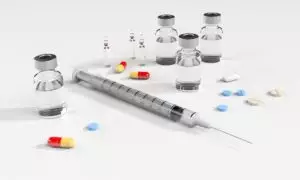The Hawaiʻian islands once had a major rat problem. To combat it, sugar cane plantation farmers imported mongooses to kill the rats. Unfortunately it did not work and now Hawaiʻi also has a mongoose problem. Similarly, a person who starts taking a prescription medication for a legitimate health concern may become addicted.
Understanding the Danger
According to the National Council on Alcoholism and Drug Dependence (NCADD), “Prescription drugs are the third most commonly abused category of drugs, behind alcohol and marijuana and ahead of cocaine, heroin, and methamphetamine.”
Nearly twenty percent of the US population has abused prescription drugs. Some of the common reasons include:
- Misunderstanding them to be safer than what’s found on the street
- For relaxation or appetite suppression
- Falsely thinking it’s a legal way to drugs
Types of Medication to Be Careful With

Pain relievers include such opioids such as Vicodin and OxyContin. These drugs may cause drowsiness and euphoria. They are also highly addictive, can slow breathing to dangerous levels, can be overdosed, and are dangerous when combined with alcohol.
Tranquilizers and sedatives are depressants. A few common examples are Xanax and Valium. They are often used to treat common issues such as anxiety or sleep problems. They can also cause drowsiness and a relaxed feeling. Negative consequences of abuse include dangerous slowing of one’s breath and heartbeat and major withdrawals such as seizures.
A few examples of stimulants include Ritalin and Adderall. They are designed to increase alertness and can also provide a sense of euphoria. However, they are addictive, can overheat the body of a person who abuses them, and can result in a seizure.
Think you or a loved one might have a problem with prescription medication? Call us at (855) 425-4846 right away.

